Welcome To Latest IND >> Fastest World News
- News
- What is the cultural importance of Chhath Mahaparv
AA
Text Size
- Small
- Medium
- Large
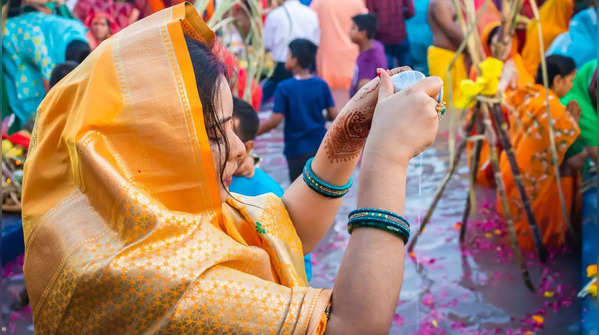
1/7
The Chhath Mahaparv
Chhath, a festival that every person from Bihar looks forward to all year, and spreads a wave of joy in their hearts, is being celebrated from 5-9 November, 2024. It is a festival dedicated to the Sun god and Chhati maiya, his sister. Devotees ask the Sun God for health, wealth, and prosperity, and live in discipline, devotion, and purity. One thing that distinguishes Chhath from other festivals is that instead of idol or image worship, Chhath is about worshipping the elements of nature.
A lesser-known value of Chhath is its cultural importance and the things it encourages. And these values are beautifully mentioned in the new book ‘Chhath: Worshipping the Sun and Nurturing Nature’ by Ekisha Singh, published by ‘Rupa Publications’. The book explores the colourful rituals, deep-rooted beliefs and significance of the festival which is celebrated with great enthusiasm across northern and eastern India. Here we mention a few points put forward by the author in the book, about the cultural importance of the Mahaparv.
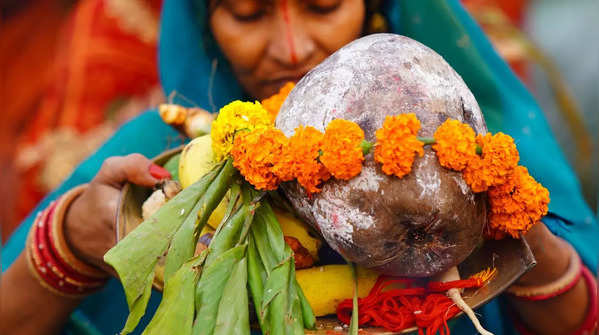
2/7
The 4 days of Chhath
The rituals and celebrations of Chhath are celebrated across 4 days – The Nahay khay, the Kharna, the Sandhya Arghya, and the Usha Arghya.
This year, it began on November 5 with ‘Nahay Khay’ which means ‘bath and eat’. All devotees take a dip in a river or pond to purify their body and soul, and then have a simple meal with rice, dal, and ‘kaddu bhat’. Then on the next day comes Kharna, where devotees observe a fast all day, and eat food after sunset. The evening meal, known as ‘Kharna’, is prepared with earthen pots, and marks the time after which the devotees observe a Nirjala fast for 36 hours. On day 3, devotees give Sandhya Arghya to the setting sun. They stand knee-deep in water, facing the sun, and offer their prayers. And then on the last day, the same thing is done with the rising sun.
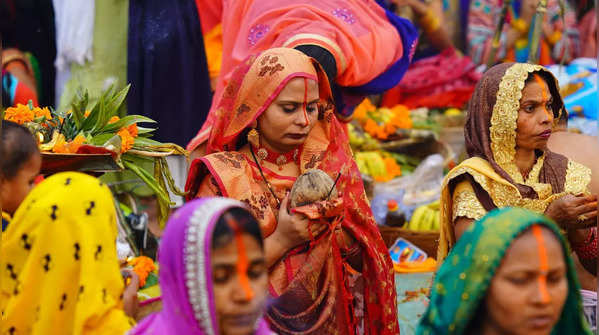
3/7
The bonds of community
One of the most beautiful things about Chhath Mahaparv is that it brings the community together. People who haven’t seen or met each other for months are reunited during the Chhath days as they come together in their native homes to stay near the holy rivers. So, it becomes not just about personal devotion, but also helps people come together, supporting each other through the rituals.
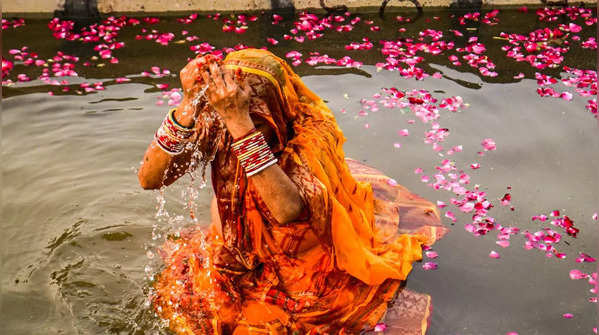
4/7
Cleaning and cleansing the waters
During the 4 days of Chhath, women and devotees spend hours in the water bodies and this makes people and authorities clean the water before the festival. Devotees, along with other villagers, neighbours, and members, clean the riverbanks, lakes, and ponds where the rituals are to be performed.
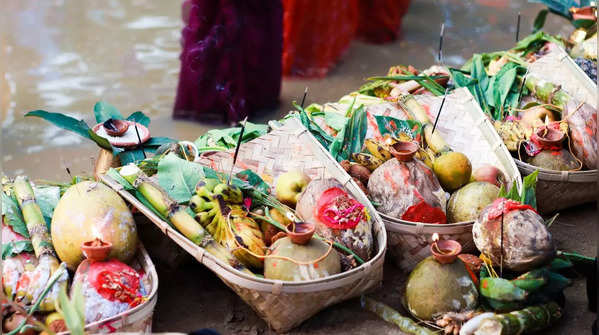
5/7
The prayers and rituals
The prayers and rituals of Chhath are also culturally important for communities and devotees. When they pray to the Sun god and Chhathi Maiya together, they form a sense of bond. The rituals encourage the use of natural elements like water, fruits, and earthen products, and it becomes a symbol of the relationship between humans and nature.The practice of standing in water during the arghya is believed to improve a person’s physical and mental well-being, and aligns them with the energies of the natural Universe.
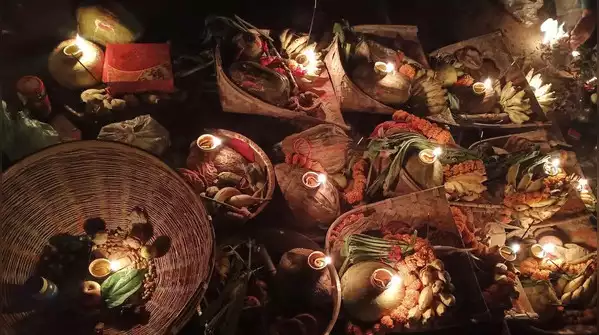
6/7
A celebration of nature
Chhath Mahaparv is the celebration of nature and its elements. The Sun god is worshipped as the source of all energy, the one who shows us light and guides us during dark times. The rituals are all deeply linked to natural elements and nature, and how everything in this Universe is connected. The festival also honours Chhathi Maiya, the mother who nourishes all children and ensures their health and prosperity. And instead of worshipping idols and pictures of the Gods and Goddesses, people worship them and their forms in real life.
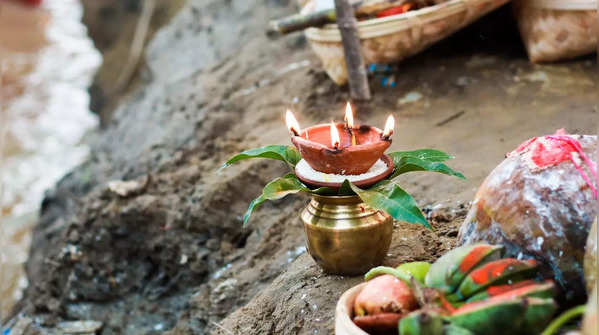
7/7
The link with Earthen products
Chhath Mahaparv also promotes the use of traditional earthen arts and cooking methods. The preparation of prasad is done in Earthen pots and utensils, and even the food is cooked not in gas, cylinders, or through inductions, but rather in a stove prepared with cow dung, twigs, and more. People also use bamboo baskets, clay lamps, and organic ingredients for rituals and worship, and decorate their homes and walls with natural elements like flowers, mitti, cow dung, and more.
FOLLOW US ON SOCIAL MEDIA
Visual Stories
Photostories
Other Times Group News Sites
Popular Categories
Hot on the Web
Top Trends
Trending Topics
Living and entertainment
Services
Latest News
ETimes is an Entertainment, TV & Lifestyle industrys promotional website and carries advertorials and native advertising.
Copyright © 2024 Bennett, Coleman & Co. Ltd. All rights reserved. For reprint rights: Times Syndication Service
Latest IND

